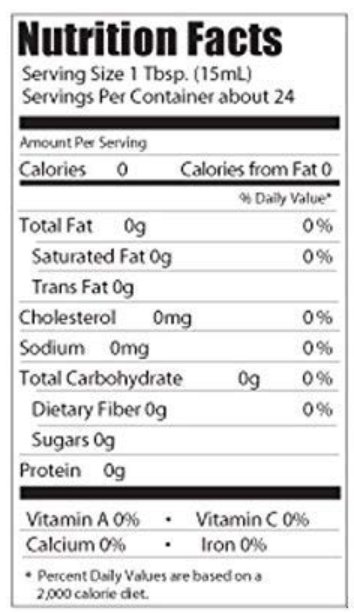Approved By » Esther Howard (Nutritionist) & Dr. Jane Cooper (Expert Dietitian)
As a self-proclaimed foodie, I’m always on the hunt for ingredients that not only tantalize my taste buds but also offer a nutritional boost.
One condiment that has piqued my curiosity is malt vinegar – that tangy, robust liquid that adds a delightful punch to fish and chips, salad dressings, and marinades.
But the question remains: is malt vinegar good for you? Let’s dive in and explore the potential health benefits of this intriguing vinegar variety.
The Short Answer
Yes, malt vinegar can be good for you when consumed in moderation as part of a balanced diet.
What Is Malt Vinegar?
Before we delve into the health aspects, let’s first understand what malt vinegar is. Simply put, it’s a type of vinegar made from malted barley.
The process involves germinating barley, allowing it to sprout, and then fermenting it with yeast to produce an alcoholic solution.
This solution is then combined with a bacteria culture that converts the alcohol into acetic acid, resulting in the tangy, unmistakable flavor of malt vinegar.
Malt Vinegar Nutrition Facts
Malt vinegar is a condiment made from fermented grain mash, typically barley. It has a tangy, acidic flavor that is often used in salad dressings, marinades, and sauces.
Malt vinegar is a good source of acetic acid, which can have some health benefits.

Here is the nutritional information for 1 tablespoon (15 ml) of malt vinegar:
- Calories: 0
- Total Fat: 0 g
- Saturated Fat: 0 g
- Cholesterol: 0 mg
- Sodium: 0 mg (0% DV)
- Total Carbohydrates: 0 g (0% DV)
- Dietary Fiber: 0 g (0% DV)
- Sugars: 0 g
- Protein: 0 g
As you can see, malt vinegar is very low in calories, fat, sodium, and carbohydrates. It is also a good source of acetic acid, which has been shown to have some health benefits, including:
- Lowering blood sugar levels
- Improving insulin sensitivity
- Aiding in weight loss
- Reducing the risk of heart disease
Important Note: While some sources list malt vinegar as having carbohydrates and sodium, these values are typically negligible and may vary depending on the brand.
It’s always best to refer to the nutrition label of the specific brand you’re using.
Is Malt Vinegar Good for You?
It offers potential health benefits such as aiding digestion, supporting blood sugar control, promoting weight loss, providing antioxidants, and possibly improving heart health due to its acetic acid content and polyphenol compounds.

However, excessive consumption may lead to tooth enamel erosion and digestive discomfort, and it may interact with certain medications.
The Potential Health Benefits of Malt Vinegar
Now, let’s explore the potential health benefits that this humble condiment may offer:
Aids in Digestion
Like other types of vinegar, malt vinegar contains acetic acid, which can help stimulate the production of digestive enzymes and improve overall digestion.
Acetic acid can also help break down complex carbohydrates, making them easier for your body to process and absorb.
Supports Blood Sugar Control
Several studies have suggested that vinegar, including malt vinegar, may help regulate blood sugar levels.
The acetic acid in vinegar has been shown to slow down the absorption of sugars from the digestive tract, potentially reducing spikes in blood sugar levels after meals.

May Promote Weight Loss
While more research is needed in this area, some studies have linked vinegar consumption to modest weight loss.
The acetic acid in vinegar may help increase feelings of fullness, leading to a reduced calorie intake over time.
Additionally, vinegar may help boost metabolism, potentially aiding in weight management efforts.
Provides Antioxidant Properties
Malt vinegar contains polyphenols, which are plant-based compounds with antioxidant properties.
Antioxidants help neutralize harmful free radicals in the body, protecting cells from oxidative stress and potential damage. This may contribute to overall health and potential disease prevention.
May Improve Heart Health
Some research suggests that vinegar consumption may have positive effects on heart health.
The acetic acid in vinegar has been linked to improved cholesterol levels, reduced blood pressure, and potentially lower risk of heart disease.
However, more extensive studies are still needed to confirm these potential benefits.

How to Incorporate Malt Vinegar into Your Diet
Now that you know about the potential benefits of malt vinegar, you might be wondering how to incorporate it into your diet.
Here are a few ideas:
- Use it as a salad dressing: Combine malt vinegar with olive oil, Dijon mustard, and your favorite herbs and spices for a tangy and flavorful vinaigrette.
- Marinate meats and vegetables: Add malt vinegar to your marinade for a delicious flavor boost.
- Drizzle it over roasted veggies: A splash of malt vinegar can enhance the flavors of roasted vegetables like Brussels sprouts or roasted potatoes.
- Mix it into sauces and dips: Use malt vinegar as a base for sauces or dips, such as a remoulade or a tangy yogurt dip.
Remember, moderation is key when it comes to any food or condiment. While malt vinegar may offer potential health benefits, it’s essential to consume it as part of a balanced and varied diet.
Recommended Daily Intake Amounts for Malt Vinegar
Unfortunately, there are no official recommended daily intake amounts specifically for malt vinegar.
However, here are some general guidelines for consuming vinegar, including malt vinegar, in moderation:
- Salad dressings and marinades: 1-2 tablespoons per serving.
- Beverages (diluted in water or other liquids): 1-2 teaspoons per serving.
- As a condiment or seasoning: 1-2 teaspoons per serving.
It’s generally advised to limit your total vinegar intake to around 2-4 tablespoons (30-60 ml) per day.
Consuming more than this amount regularly may lead to potential side effects like tooth enamel erosion, digestive discomfort, or interactions with medications.
It’s also important to note that malt vinegar, like other types of vinegar, is quite acidic.
Diluting it with water or other liquids can help reduce the risk of enamel erosion and make it easier on your digestive system.
Addressing Potential Concerns and Misconceptions
While malt vinegar has many potential benefits, there are also a few misconceptions and concerns worth addressing:
Tooth Enamel Erosion
Like other acidic foods and beverages, excessive consumption of vinegar, including malt vinegar, can potentially erode tooth enamel over time.
However, this risk can be mitigated by diluting vinegar with water or other liquids and avoiding excessive consumption.
Interactions with Medications
Vinegar may interact with certain medications, such as insulin and diuretics.
If you’re taking any medication, it’s always best to consult with your healthcare provider before increasing your vinegar intake.
Digestive Discomfort
While malt vinegar may aid digestion for some individuals, others may experience digestive discomfort or heartburn when consuming vinegar, especially in large quantities or on an empty stomach. Start with small amounts and see how your body reacts.
Can You Use Malt Vinegar for Cleaning?
You can use malt vinegar for some cleaning tasks, but white vinegar is generally a better choice.

Here’s a breakdown:
Pros of using malt vinegar for cleaning:
- Acidity: Like other vinegar, malt vinegar has acetic acid which can cut through grime, kill bacteria, and remove some stains.
- Rust removal: It can be effective in removing rust from metal surfaces.
- Descaling: Malt vinegar can descale kettles and coffee makers.
- Glass cleaning: Diluted malt vinegar can be used to clean windows and glass surfaces.
Cons of using malt vinegar for cleaning:
- Staining: Malt vinegar has a darker color than white vinegar and can stain light-colored surfaces or fabrics.
- Strong odor: It has a stronger smell than white vinegar, which can be unpleasant.
Overall, white vinegar is a better all-purpose cleaner due to its lighter color and milder odor.
However, in a pinch, malt vinegar can be a substitute for certain cleaning tasks, especially for descaling, rust removal, and cleaning glass, as long as you dilute it properly and take care not to stain anything.
The Bottom Line
Based on the available research and potential benefits, it appears that malt vinegar can be a healthy addition to your diet when consumed in moderation.
Its acetic acid content, antioxidant properties, and potential effects on blood sugar control and weight management make it an intriguing condiment to consider.
However, it’s essential to remember that malt vinegar should be consumed as part of a balanced and varied diet, and not as a magic solution for health issues.
As with any dietary change, it’s always wise to consult with a healthcare professional, especially if you have specific health concerns or conditions.
Embrace the tangy, robust flavor of malt vinegar, and enjoy it as a flavorful addition to your favorite dishes while potentially reaping some health benefits along the way.
Sources:
[1] Vinegar: Effect on human health https://pubmed.ncbi.nlm.nih.gov/32170375/
[2] Role of vinegar in regulating glycemic response and body weight management in metabolic syndrome https://www.health.harvard.edu/blog/apple-cider-vinegar-diet-does-it-really-work-2018042513703
[3] The effect of vinegar on appetite control and body weight after overeating https://pubmed.ncbi.nlm.nih.gov/23979220/
[4] Bioactive phenolics and antioxidant properties of vinegar: a potential source of antioxidants for the food industry https://www.ncbi.nlm.nih.gov/pmc/articles/PMC5085691/

